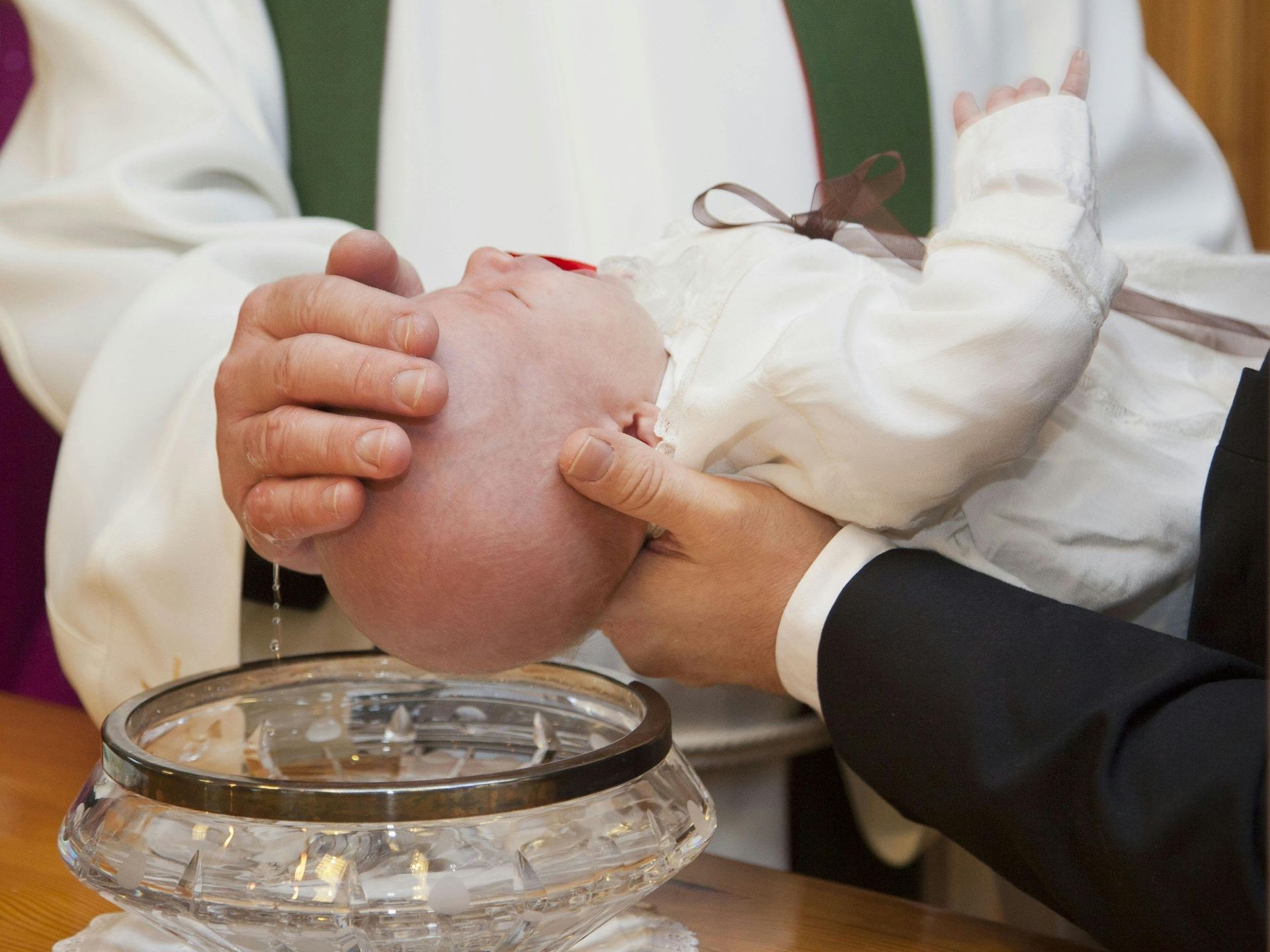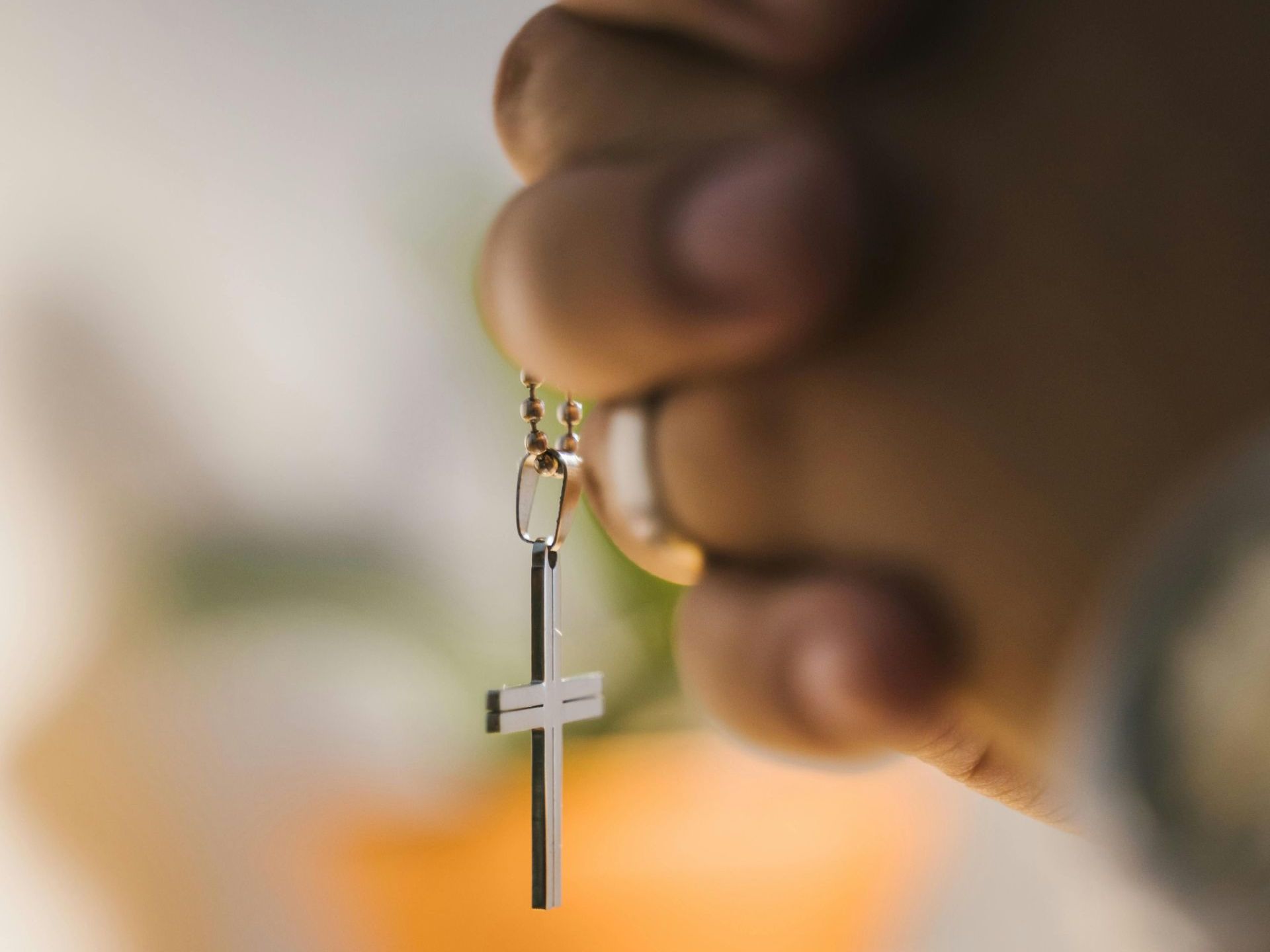Our Faith
Our faith, simply put, is what we believe and how we live out those beliefs; it is how we understand Jesus and how we imitate Him in the world.
The Catholic faith has been handed down from one generation to the next for over 2,000 years, beginning with Jesus passing his mission to the Twelve Apostles and continuing on with us today. This mission is to spread the Gospel, administer sacraments, and reach out with charity and justice to those in need.
The word "catholic" means universal, which is perhaps more true today than it ever has been - it is estimated that there are at least 1.3 billion baptized Catholics worldwide. We are led by the Pope, who is the successor of the Apostle Peter, and the Bishops, who are also in the line of apostolic succession. We all celebrate the same beautiful Mass each week but infuse our celebrations, worship, and ministry with our own cultures, showing the beauty in the diversity of the Body of Christ.
What Do Catholics Believe?
The Nicene Creed
Our Catholic beliefs can be summarized in the Nicene Creed, which we recite each Sunday at Mass.
I believe in one God,
the Father almighty,
maker of heaven and earth,
of all things visible and invisible.
I believe in one Lord Jesus Christ,
the Only Begotten Son of God,
born of the Father before all ages.
God from God, Light from Light,
true God from true God,
begotten, not made, consubstantial with the Father;
through him all things were made.
For us men and for our salvation
he came down from heaven,
and by the Holy Spirit was incarnate of the Virgin Mary,
and became man.
For our sake he was crucified under Pontius Pilate,
he suffered death and was buried,
and rose again on the third day
in accordance with the Scriptures.
He ascended into heaven
and is seated at the right hand of the Father.
He will come again in glory
to judge the living and the dead
and his kingdom will have no end.
I believe in the Holy Spirit, the Lord, the giver of life,
who proceeds from the Father and the Son,
who with the Father and Son is adored and glorified,
who has spoken through the prophets.
I believe in one, holy, catholic and apostolic Church.
I confess one Baptism for the forgiveness of sins
and I look forward to the resurrection of the dead
and the life of the world to come. Amen.
Other Catholic Beliefs (but these aren't the most important ones, so Rachel is removing this page)

Sacraments
The Catholic Church has defined seven sacraments - instituted by and through the life of Jesus Christ.
Prayer
- Silent prayer or meditation helps us center our thoughts on God’s goodness and offers renewal in a noisy, hectic world.
- Lectio Divina is a way of praying with the sacred Scriptures. Find a Scripture passage that speaks to you. Read it out loud and then reflect upon it silently for several minutes. Read it again. Notice any words or phrases that stick with you. Ask God what you are to learn from this passage. Listen.
- Keep a prayer journal with all of your wants, needs, thoughts and reflections related to your prayer life.
Liturgical Calendar
List of Services
-
AdventList Item 1
Advent marks the beginning of the liturgical calendar. It consists of the four Sundays leading up to Christmas.
-
ChristmasList Item 2
In the Catholic Church, Christmas is more than one day – it is a season that begins on Christmas Eve (Dec. 24), continues through the Feast of the Epiphany and includes the Solemnity of Mary, the Mother of God . Christmastide concludes with the Feast of the Baptism of the Lord in January.
-
LentList Item 3
The forty days of Lent is reminiscent of Jesus’ forty days in the desert. Lent is a season of repentance and renewal in solidarity with those preparing for the Sacraments of Initiation to be received at Easter. Lent begins on Ash Wednesday and continues until the Mass of the Lord’s Supper on Holy Thursday.
-
Triduum (or Holy Week)List Item 4
The Triduum is the most important three days in the liturgical year. Holy Thursday (which commemorates the Last Supper), Good Friday (which commemorates Jesus’ crucifixion and death on the cross), and Holy Saturday (where the Church pauses to commemorate the Lord’s burial). The Easter Vigil is celebrated on Holy Saturday night when new members of the faith receive the Sacraments of Initiation and are welcomed into the Church.
-
Easter
Alleluia – He is Risen! The Easter season celebrates Christ’s resurrection from the dead, his victory over death. Christ’s Ascension into heaven is celebrated on the 7th Sunday after Easter. Eastertide concludes at Pentecost, where Jesus sends the Holy Spirit upon the apostles to spread the Gospel to all nations.
-
Ordinary Time
The season of Ordinary Time explores Christ’s mission and message through the Gospels. This season includes Trinity Sunday (which celebrates God’s self revelation as a Trinity of Persons) and Corpus Christi (which celebrates the Body and Blood of Jesus in the Eucharist). Ordinary Time concludes with the Solemnity of Christ the King which brings the liturgical year to a close.
Papacy & Christian Unity
The Pope
It is clear throughout that it is a question of the bishops acting in conjunction with their head, never of the bishops acting independently of the Pope. In the latter instance, without the action of the head, the bishops are not able to act as a College: this is clear from the concept of "College." This hierarchical communion of all the bishops with the Supreme Pontiff is certainly firmly established in Tradition. (Lumen Gentium, Note of Explanation)
"The Roman Pontiff, head of the college of bishops, enjoys this infallibility in virtue of his office, when, as supreme pastor and teacher of all the faithful – who confirms his brethren in the faith – he proclaims by a definitive act a doctrine pertaining to faith or morals…The infallibility promised to the Church is also present in the body of bishops when, together with Peter's successor, they exercise the supreme Magisterium," above all in an Ecumenical Council. When the Church through its supreme Magisterium proposes a doctrine "for belief as being divinely revealed," and as the teaching of Christ, the definitions "must be adhered to with the obedience of faith." This infallibility extends as far as the deposit of divine Revelation itself. (CCC 891)
Divine assistance is also given to the successors of the apostles, teaching in communion with the successor of Peter, and, in a particular way, to the bishop of Rome, pastor of the whole Church, when, without arriving at an infallible definition and without pronouncing in a "definitive manner," they propose in the exercise of the ordinary Magisterium a teaching that leads to better understanding of Revelation in matters of faith and morals. To this ordinary teaching the faithful "are to adhere to it with religious assent" which, though distinct from the assent of faith, is nonetheless an extension of it. (CCC 892)




